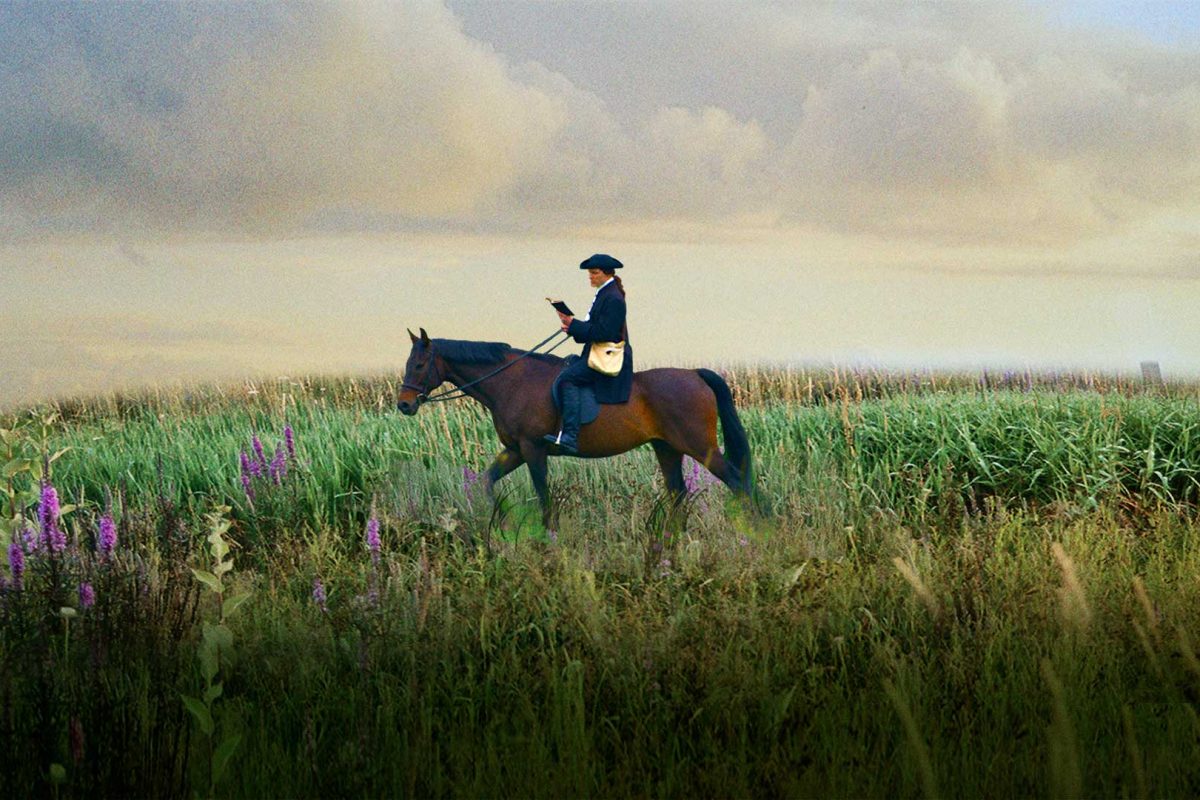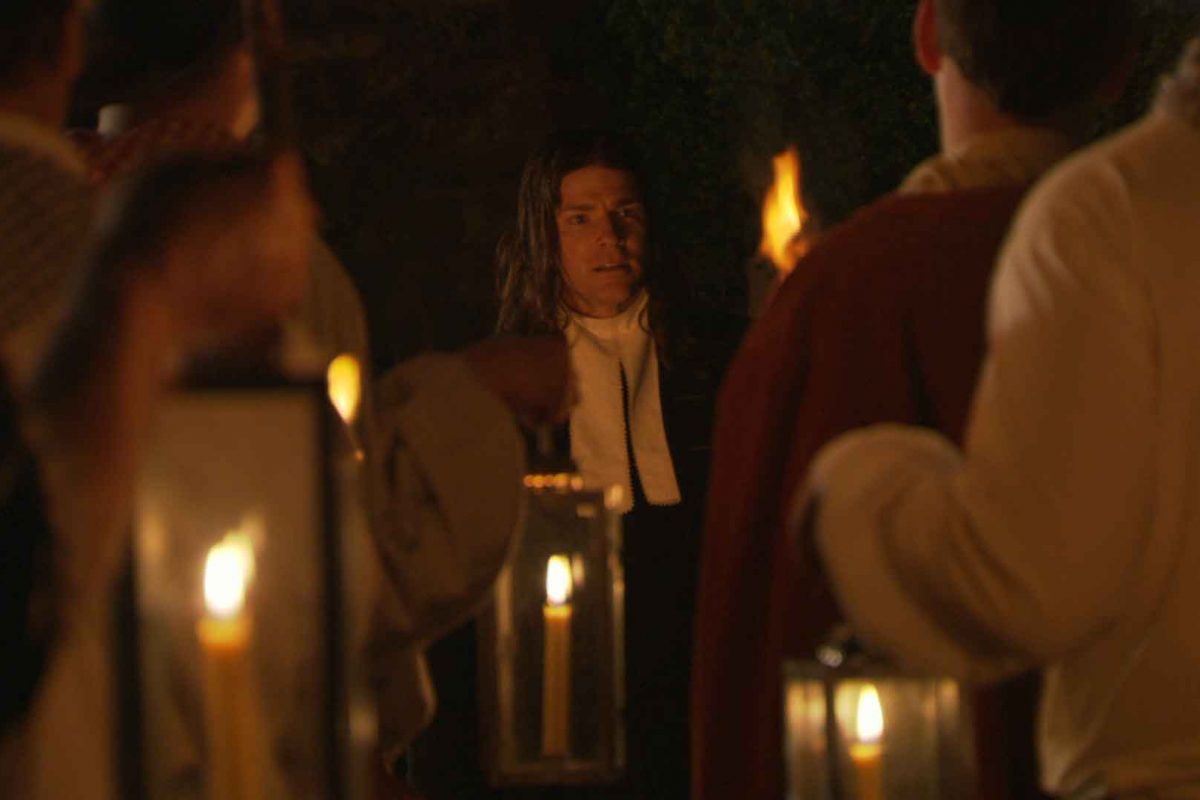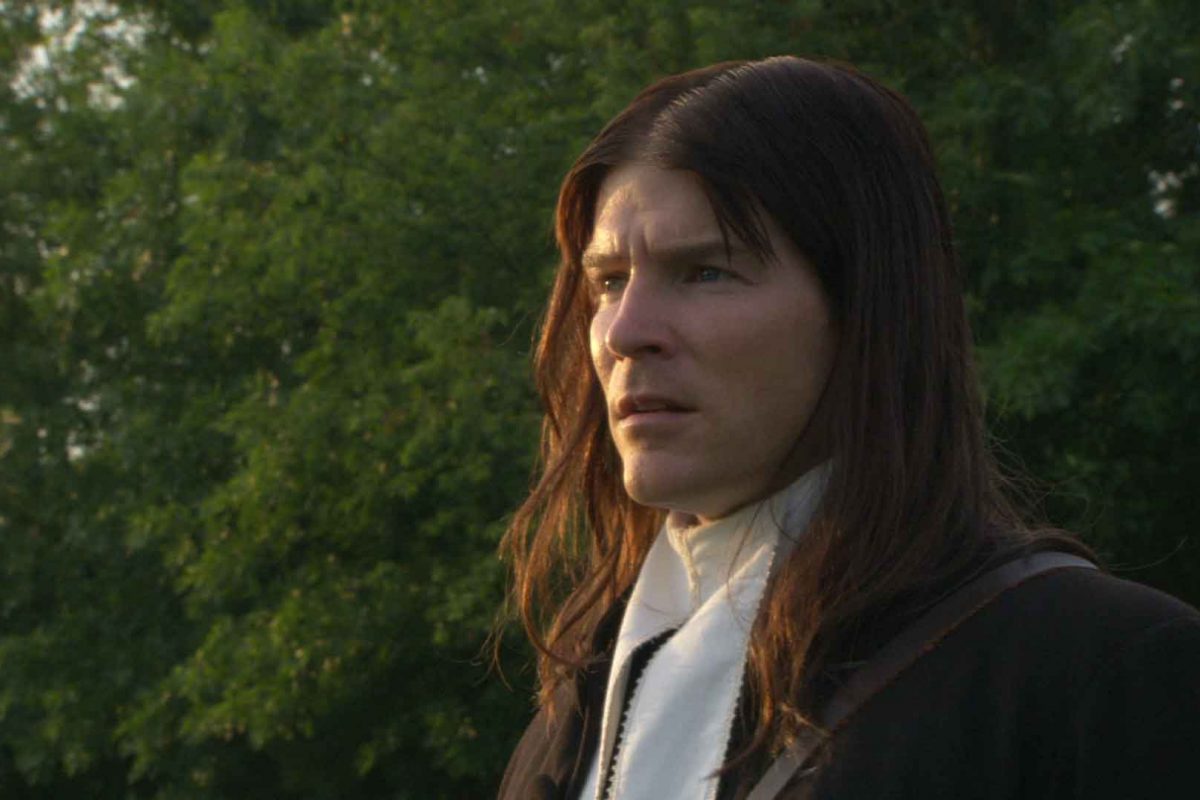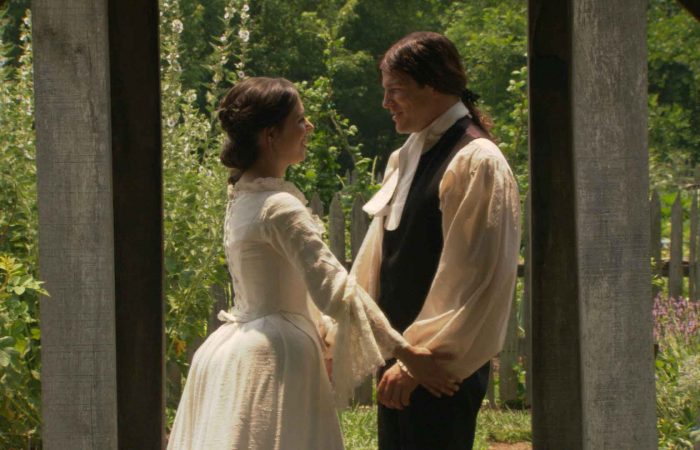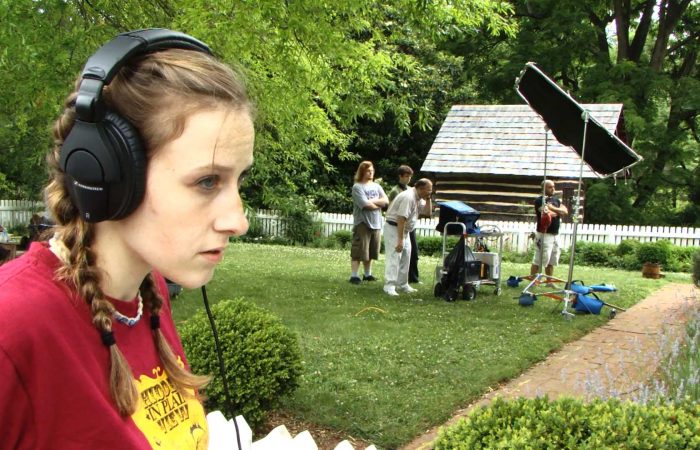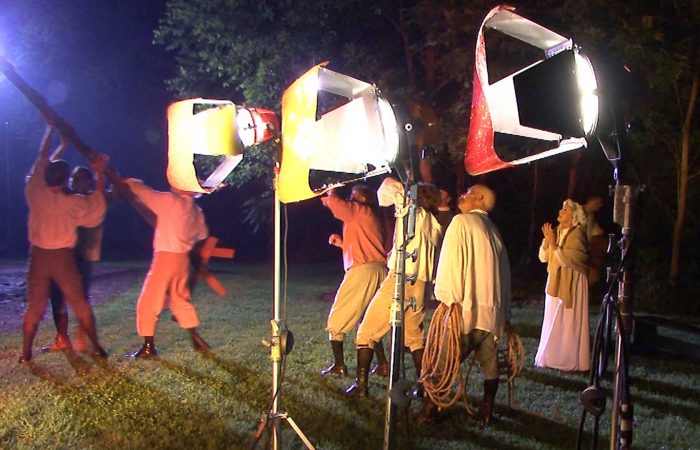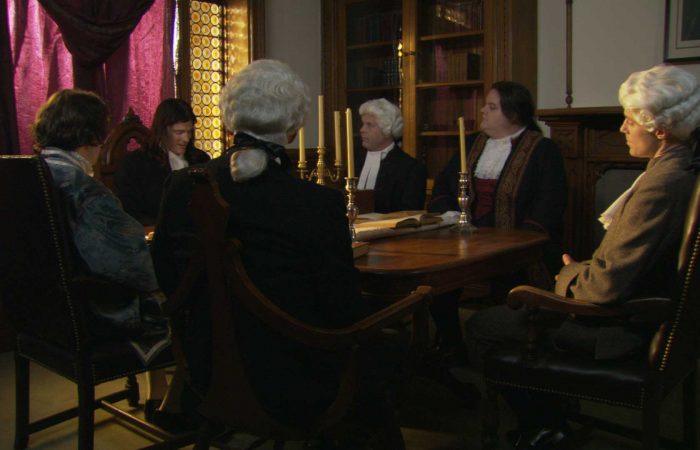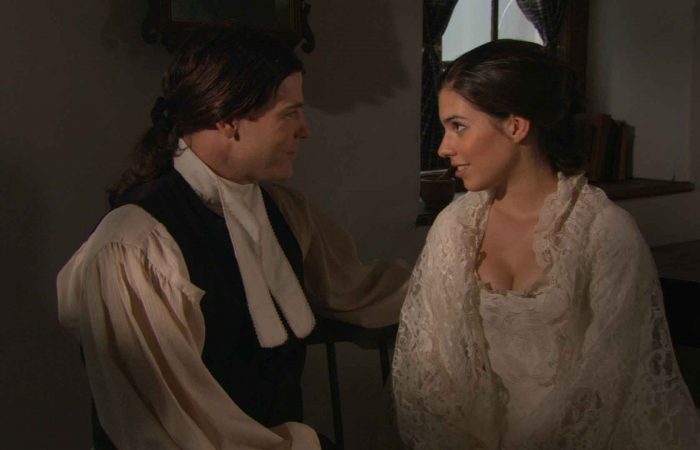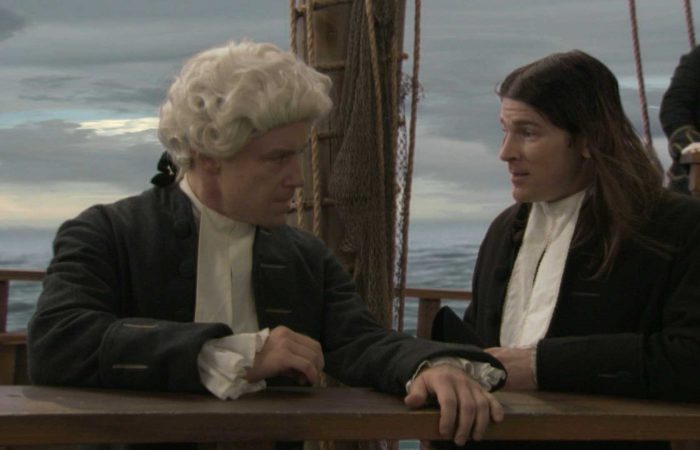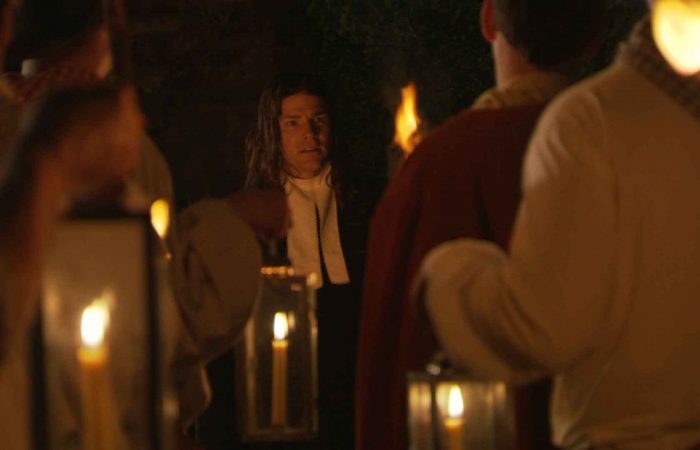
July 2019
Carolyn Haywood
Screenwriter
 Carolyn Haywood is an award-winning scriptwriter and author. She co-wrote the final version of the Wesley script with John Jackman. Carolyn also served as set designer for Wesley, putting together authentic historic sets. She caught the screenwriting bug when she heard an Emmylou Harris song Red Dirt Girls on the radio and began envisioning the tragic story as a movie. The Red Dirt Girls script was turned into a novel. Her next script, The Angel Gabriel, won the 20/20 competition and was in the top twenty of the Screenwriting Expo and was a finalist in the Writer’s Arc fellowship program. In 2005 she collaborated with Karen Kallis Cheesman on Morning Star and Moon. Conroy Kanter of KK Ranch Productions is producing with Shirley MacLaine attached to play the lead. Tears For The Innocent won Script magazine’s Thrills and Chills contest resulting in an agency deal with Guy Walks Into A Bar, which manages writers & directors for film and television. They also produce films including New Line’s Christmas hit, ELF. Guy Walks Into A Bar has a first look deal with Paramount and is also developing numerous projects at other studios.
Carolyn Haywood is an award-winning scriptwriter and author. She co-wrote the final version of the Wesley script with John Jackman. Carolyn also served as set designer for Wesley, putting together authentic historic sets. She caught the screenwriting bug when she heard an Emmylou Harris song Red Dirt Girls on the radio and began envisioning the tragic story as a movie. The Red Dirt Girls script was turned into a novel. Her next script, The Angel Gabriel, won the 20/20 competition and was in the top twenty of the Screenwriting Expo and was a finalist in the Writer’s Arc fellowship program. In 2005 she collaborated with Karen Kallis Cheesman on Morning Star and Moon. Conroy Kanter of KK Ranch Productions is producing with Shirley MacLaine attached to play the lead. Tears For The Innocent won Script magazine’s Thrills and Chills contest resulting in an agency deal with Guy Walks Into A Bar, which manages writers & directors for film and television. They also produce films including New Line’s Christmas hit, ELF. Guy Walks Into A Bar has a first look deal with Paramount and is also developing numerous projects at other studios.
Liz May
Sound Mixer
 Liz May served as on-set sound supervisor and as sound mixer in post, creating many of the sound effects used in the movie. She has worked on several other films, including Artifacts (2010), Stalemate (2011), and Vulnerability (2013). After training in Nashville in audio production, she started her own recording and sound production company, SoundLizzard Productions. She has been active in organizing many events in the Winston-Salem area focusing on drama and music production. She worked for the HanesBrands Theater as production coordinator, and has served for the last several years as production and facilities manager for the historic Reynolds Auditorium in Winston-Salem, NC.
Liz May served as on-set sound supervisor and as sound mixer in post, creating many of the sound effects used in the movie. She has worked on several other films, including Artifacts (2010), Stalemate (2011), and Vulnerability (2013). After training in Nashville in audio production, she started her own recording and sound production company, SoundLizzard Productions. She has been active in organizing many events in the Winston-Salem area focusing on drama and music production. She worked for the HanesBrands Theater as production coordinator, and has served for the last several years as production and facilities manager for the historic Reynolds Auditorium in Winston-Salem, NC.
Dove Foundation Review

Reviewer: Edwin L. Carpenter
Please read the Dove Foundation review and rating on their WEBSITE.
Synopsis
Step into 18th century England and experience the transformation of one man, whose heart-wrenching search for peace haunts him even as he pours himself into a life of service and evangelism. Uncover Wesley’s spiritual struggle and renewal as never before while you learn about his controversial “Method”. Marked by confrontation, tension, and mob violence, Wesley’s perseverance compelled him to a new type of itinerant, open-air ministry to the lowest classes of society.
Dove Review
This is a very well done movie with solid acting and is one of the more interesting period pieces which I have reviewed. Burgess Jenkins is outstanding as John Wesley, the man who struggles with the conflict of pleasing God by good works or by faith alone. This film is wholesome for the most part but it does portray Wesley’s temptation as he deals with the passion he feels for a woman who desires to marry him.
This movie may just stir you to deepen your spiritual roots. How many films do that?
It should be noted that the long-time outstanding actress, June Lockhart, of “Lassie” and “Lost in Space” fame, plays Wesley’s mother in the movie and her addition is a pleasant one. The film features some fine scenes including one in which Wesley shows up in bare feet to teach a class, because a boy in class has been teased for having no shoes. Wesley faces incredible persecution from the church in England and the poor visitors he invites to church are not welcome. Soon Wesley is going to the people outside the church and his “methods” begin to be questioned. These incidents eventually lead to his Methodist church. We learn by film’s end that Wesley went on to start chapels, schools, orphanages and shelters throughout England, Scotland, Ireland and Wales.
This DVD is well worth seeing but we do recommend it for ages twelve plus due to a few of the mature themes. This movie may just stir you to deepen your spiritual roots. How many films do that? We are pleased to award our Dove Seal to this movie.
Content Description
- Sex: Kissing; a character glances at a woman’s breasts and fights his desire for her.
- Language: H (as a location)-5; “Bloody” H-1; A girl tells another girl to “shut your trap”.
- Violence: A man is beaten to death although the scene isn’t graphic; man dreams of house on fire; a raging storm at sea; a woman has a black eye from spousal abuse; men show up with torches to attack Wesley; a man is hired to kill Wesley; a stone is thrown through a window; a man strikes a minister twice.
- Drugs: The drinking of wine in a few scenes; it’s mentioned that a man got into trouble for running rum.
- Nudity: Close-up of cleavage; cleavage in a few scenes; shirtless men.
- Other: Preaching of the word; praying; some hypocrites who do not desire the poor to be at their services; death and grief.
Circuit Rider Review

 Reviewed by Matthew L. Kelley, pastor of Bethlehem United Methodist Church in Clarksville, Tenn.
Reviewed by Matthew L. Kelley, pastor of Bethlehem United Methodist Church in Clarksville, Tenn.
John Jackman’s new Wesley biopic depicts the life of Methodism’s founder from his early days at Oxford through his unsuccessful mission to the Georgia colony, and the growth of the Methodist movement back in England. These three eras in Wesley’s life show the three “rises of Methodism,” as Wesley later termed them in his journals, which makes sense because the writers and producers of the film consulted John and Charles Wesley’s journals very closely throughout the production.
Previous attempts to put Wesley’s life on film have often strayed into hagiography, depicting Wesley as an otherworldly saint who never made mistakes and was free of emotion or struggle. Not so with this film. John Wesley (Burgess Jenkins), while remaining a very proper British cleric, is passionate about his faith and struggles mightily with how to live it out. This passion often leads him to doubt himself, make mistakes, and find himself in conflict with others, but it also leads him to make some bold and unorthodox choices to include those who were left out by the church establishment. In other words, “Wesley” gives fantastic insight into the man who would shape the face of Protestant Christianity for centuries to come.
The film begins with a flashback to Wesley’s childhood and the Epworth rectory fire, an experience that convinced John that God had something special planned for his life. We also see Susanna Wesley (June Lockhart, of Lassie fame) instructing her children in the faith and forming strict habits that would last throughout their lives.
A significant amount of time is devoted to John’s experience and struggles in the Georgia colony. His romance with Sophy Hopkey (Carrie Anne Hunt) is a bit overplayed, but it does serve to highlight the growing conflict within John Wesley over his sense of calling. His properly-emphasized interactions with the Moravians illustrate his growing sense that something is lacking in his faith. Also in Georgia, Wesley learns about plants that can be used as natural remedies, something that he will use back in England when the Methodists commit themselves to providing medical care for those who cannot afford to see a doctor. He also grows in his appreciation for the virtues of the Native Americans, who he observes living very Christian lives even though they know very little Christian doctrine.
When John Wesley returns to England, he feels like a failure, even though Peter Boehler (Bill Oberst, Jr.) and others try to cheer him up and assure him that God truly is with him. In portraying Wesley’s Aldersgate experience, the filmmakers are careful to show that Wesley received an assurance of salvation, and not portraying it as a conversion experience. Anyone familiar with Wesleyan history and theology will be extremely grateful for this.
The rest of the film shows John Wesley growing bolder and going outside the box more often as the Methodist revival grows. No Wesley film would be complete without seeing him “resolve to be more vile,” as he put it, going out to preach in the fields to those outside the established church, and, of course, the scene where he tells an angry bishop that “the world is my parish.”
Wesleyan theologians may be disappointed by the scene where John systematically lays out the “Quadrilateral” of scripture, tradition, reason, and experience. Wesley himself never formalized his methodology that way; this framework was theorized in the twentieth century by Albert Outler. If one can put the historical fiction aside for a moment, however, they can appreciate how the scene demonstrates how Wesley was an innovator and a fantastic model for practical theological dialogue in our day.
One of the film’s strengths is also a weakness. It is so committed to giving an honest portrayal of the life of John Wesley that it struggles at times to fit the standard narrative structure that most movie-going audiences are used to. The emotional climax of the film is at Aldersgate, and yet that is just past the halfway point of the film. The rest feels like an extended resolution, though nonetheless a great introduction to early Methodism in England.
While “Wesley” may not achieve the box office success of a summer blockbuster, it is a great film for church groups. There are a number of well done scenes that serve as launching points for discussion about things that make Methodism unique, both in theology and practice. It would be especially useful in a confirmation or new member class setting.
________________________________
This review is reproduced here because of substantial changes in the Circuit Rider Magazine’s web site, which is now part of Ministry Matters. Older Circuit Rider articles are no longer available on their site.
UM Reporter Review

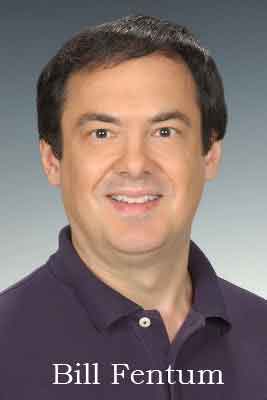 By Bill Fentum
By Bill Fentum
Staff Writer
It’s been more than two years since a feature-length biography of John Wesley was shot, mostly in locations around Winston-Salem, N.C. After a limited theatrical run Wesley will probably be seen in churches, enacting on-screen the early days of the Methodist movement.
Is the film a perfect entertainment or a standard costume drama? Neither, actually.
On a dramatic level Wesley ranks several notches above recent faith-based productions like Fireproof and To Save a Life. Burgess Jenkins—an actor whose credits include a part in Remember the Titans (2000)—offers a sincere, persuasive turn in the title role.
On a dramatic level Wesley ranks several notches above recent faith-based productions like Fireproof and To Save a Life.
Cinematographer Arledge Armenaki also deserves praise for his lush visual palette, with rural North Carolina locations subbing for 18th-century England and the New World colony in Georgia where Wesley preached for two years.
The small budget can’t be disguised, though, when director John Jackman attempts more elaborate set pieces (on a ship deck, for example), and the dialogue often slips into clichés. Still, it’s a worthy effort at exploring our ecclesial history.
Based on the journals of Wesley and his brother Charles (R. Keith Harris), the script covers the first years of their ministry starting in 1735 with the mission to Georgia. Charles goes reluctantly and suffers a severe attack of pleurisy during the voyage. Months later he returns home, his strict piety rejected by the colonists.
Meanwhile, John seems to have evangelistic zeal but relies more on his willpower than faith in God. When their ship is nearly wrecked at sea, he watches Moravian missionaries on board singing hymns amid the storm and wonders where they find such bravery.
“Open your heart to the Savior,” a Moravian bishop advises. “Then you will be filled with joy and you will know.”
In Savannah he falls in love with Sophy Hopkey (Carrie Anne Hunt), the niece of the local magistrate. Her family supports the romance but John suddenly breaks it off, insisting there isn’t room in his life for both God and a spouse. (His inner struggle differs from historical accounts that claim the bishop discouraged the union.)
Sophy later marries a local clerk and drifts away from the church. Driven by self-righteousness grief, John denies her the sacrament of Holy Communion and faces a trial for defamation of her character. He then flees in shame to England, doubting his call to ministry and feeling apart from the love of God.
“How can I still preach to others something I don’t have myself?” he asks Charles and Peter Boehler (Bill Oberst Jr.), a Moravian clergyman.
“Preach faith until you have it,” Boehler famously tells him. “Then, because you have it, you will preach faith.”
These are the film’s most poignant moments, leading to John’s conversion at Aldersgate Chapel, where his heart is “strangely warmed” by the assurance of saving grace through Christ. He then preaches that message in pulpits and later in open fields, bringing the gospel to England’s poor laborers at a time when the institutional church shunned them.
The narrative spans a few more years, as John starts church societies around London and sends lay preachers into the countryside. We see his conflict with Anglican leaders who opposed him, and the persecution suffered by early Methodists. The unrated film keeps within G or PG boundaries, but briefly depicts the martyrdom of preacher William Seward in 1740.
Other scenes feel routine and anti-climactic—especially John’s inspirational, placating speech before a mob sent to kill him. And though veteran star June Lockhart is on hand as Susannah Wesley and Kevin McCarthy ably portrays an Anglican bishop who defends John’s mission, too many small roles are filled by amateurs.
Despite the flaws, however, Wesley achieves its main goal: to reveal Methodism’s founder as a disciple who needed the gift of grace as much as anyone, and found in his own experience a passion to transform the world. For that, a wide audience is deserved.
The United Methodist Reporter transitioned to a new web site in 2013 and older articles are no longer available online.
Reading Eagle Review
Film conveys passion of church’s founders
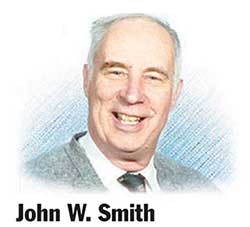
Originally Published: 5/15/2010 – by John Smith
If you’re a Methodist or a Moravian, the place you definitely should be at noon today or next Saturday is the GoggleWorks. If you’re a Lutheran, or another type of Protestant, you should go as well.
These are the final two showings of the full-length film “Wesley,” a biography of John and Charles Wesley, founders of the Methodist Church. It was directed and co-written by John Jackman, former pastor of Reading Moravian Church, on hand for last Saturday’s Reading debut.
This is no low-budget, amateurish production. It’s a movie that in acting, music, cinematography and story stacks up with the best of Christian films.
“…stacks up with the best of Christian films.”
You know it’s a class act when June Lockhart and Kevin McCarthy show up in brief – but important – roles. “June was really cool,” said Jackman, who noted that McCarthy, whom he also praised, feels at age 92 he has earned the right to eat (and drink) whatever he wants.
You also know it’s not a typical Hollywood production when the ubiquitous story line of boy meets girl, boy loses girl, boy gets girl ends a phrase short. (Wesley, who says no to the alluring Sophia because of his vow to God, and thus invites trouble, eventually married, unhappily, at age 48, long after the film ends.)
Moravians will be interested, of course, because of the effect their calmness had on Wesley during the famous fierce Atlantic storm, after which Wesley credits them with “a peace I don’t have and a confidence I don’t feel.”
And Lutherans can be proud that Wesley’s conversion experience in Aldersgate Street stemmed from his hearing Luther’s “Preface to Romans.” Wesley, like Luther, had been trying to work his way to heaven.
The attention to detail is mirrored in one scene, when Wesley reads 1 Corinthians 13 with love instead of the charity of that era. Jackman explained that Wesley authored a Bible translation that used love, and actor Burgess Jenkins wanted authenticity.
One viewer questioned the lack of music of brother Charles’ hymns. Jackman explained that Charles was a poet, not a composer; the music familiar to us was not written until many years later.
The flashbacks to the nearly fatal house fire when Wesley was 5 are effective.
And the many vignettes are artfully worked into the story:
John’s arguments (in love) with Charles; his handling of the boys teasing their shoeless schoolmates; his flight in darkness from Georgia; his winning over an advancing angry mob; his reluctant acceptance of unordained preachers; Bishop Ryder’s approval of him because, though he disliked Wesley’s methods, he loved the results.
“So many stories,” Jackman sighed. “We had to cut.”
Wesley’s concluding sermon warns against emphasis on ritual and doctrine and extols instead a heart transformed by love.
Contact John W. Smith: 610-371-5007 or jsmith@readingeagle.com
Read Review on the Reading Eagle Site.
– P. McGuire, IMDB
“Beautifully filmed…the acting is excellent!”
– Peter Hallinan, IMDB
“Well-crafted drama…a film of inspiration for today.”
